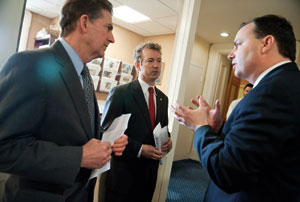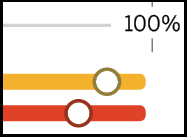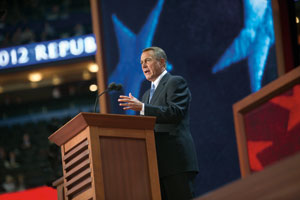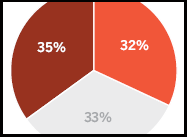CQ WEEKLY – COVER STORY
Sept. 8, 2012 – 1:27 p.m.
Boehner: The Speaker of the Unruly
By Meredith Shiner, CQ Staff
Speaker

|
||
|
Picking over their continental breakfasts and listening politely, the delegates responded to the anti-Obama message but were lukewarm in their embrace of the Ohio Republican and the rest of the GOP leadership. Many spoke more approvingly of libertarian Rep.
It isn’t so much that the conservatives who have been the source of Republican energy the past two election cycles don’t like Boehner personally. “He has emotion when he talks. I mean, he’s a real person,” as delegate Mark Jones from Kansas City put it.
Rather, it’s that they aren’t sure they like where top party officials are leading them. “I’m not always happy with Speaker Boehner, but he is the leader and he is very diplomatic in the way he handles things,” said Jones. “I am totally against raising the debt ceiling, 100 percent of the time, and he’s voted for that, and so obviously that’s part of my disagreement.”
Boehner’s appearance that morning at an airport hotel 900 miles from the Speaker’s rooms on Capitol Hill, and his effort to engage the new conservative base, underscored his most elemental problem during the past two years. He is a creature of the party’s establishment trying to capture the spirit of a movement that distrusts it.
As much as the Speaker does to build his party’s power — he barnstormed the country in August, raising almost $4 million in the 23 days leading up to the convention — Boehner’s real strength comes from how much control he wields over the tea party-infused House Republican majority. Over the past 20 months, his hold on the Republican Conference has often appeared tenuous at best. His most defining moments as Speaker have come at deadlines, whether on the cusp of government shutdown or the brink of default.
As lawmakers return from an extended summer recess designed to accommodate the national party conventions, the prospects for additional showdowns — between the parties and between Boehner and the restless conservatives in his caucus — will provide further tests for the Speaker. The House calendar shows just 13 more days in which to conduct legislative business. In that period, Boehner has two clear challenges: passing a bill to keep the government in business after the Oct. 1 start of the new fiscal year, and finding a way to keep federal farm assistance programs operating after that same deadline. If Boehner can accomplish those two tasks, he will put his party in the best position possible come November, when Republicans will attempt to win back the White House and the Senate.
Neither measure would have been routine in the House during the past 20 months, and they may not be today. What happens on Capitol Hill in the next few weeks may hinge on whether Boehner, who has prided himself on laissez faire leadership, has learned how to tighten the reins when necessary, or on whether the freshmen who once gave House Republican leaders heartburn on every major legislative endeavor have adopted the ways of Washington, as they promised never to do.
The Speaker’s pre-August agreement with Senate Majority Leader
In a roundtable discussion with reporters in Tampa, Boehner offered the narrative that the more conservative House lawmakers were never disbelievers in government, but rather were good Republicans trying to rein in excessive spending sought by Democrats. The core concern in his caucus, Boehner said, has always been about how much the government should spend, not whether spending should occur at all — although there were times when conservative lawmakers said otherwise.
“The freshmen understand that there are basic things the government has to do — that was never the issue,” Boehner said, explaining why he agreed with Reid and the White House to endorse a stopgap spending bill for the first half of fiscal 2013 at a level higher than many conservatives would prefer. “It’s never been over the need to pass the bill. It’s always been over the spending limit,” he said.
The CR Challenge
Boehner: The Speaker of the Unruly

|
||
|
The question to be answered is whether the agreed-upon spending level for a six-month continuing resolution is too high for conservatives to accept. The House is expected to take up the measure before this week is over — and weeks before it’s essential to do so — in part to clear the decks, and in part to prove that the days of budgetary brinkmanship are in the past.
The deal was announced way back in the last week of July. In a matter-of-fact statement at the microphones after Senate Democrats held their regular policy luncheon, Reid said he, Boehner and the White House had agreed to move a six-month appropriations measure reflecting the spending limit set in last August’s debt limit deal.
“This is very good because we can resolve these critical issues that directly affect the country as soon as the election is over and move on to do good things,” Reid told the assembled reporters. “It puts this out of the way, and that’s very important.”
In the 112th Congress, such an outcome has been virtually unheard of. And it wouldn’t be without precedent for the agreement to unravel under opposition from the right. To begin with, the $1.047 trillion ceiling on discretionary appropriations for fiscal 2013 set in the debt limit law is $19 billion higher than the cap in the House-approved budget resolution for the coming year — a figure selected by Wisconsin Rep.
Seemingly less-freighted agreements have been pulled apart by internal GOP disputes during this Congress. Last December, House Republicans balked at a deal to extend a reduction in the Social Security payroll tax paid by workers and benefits for the long-term unemployed. Their apparent backtracking embarrassed Senate Republicans and handed Democrats an unexpected political victory.
If House leaders are able to wrap up the continuing resolution quickly, that will be a significant departure from the series of showdowns that have defined this Congress. And it will reveal a sharpened political savvy among the 87 freshman Republicans — a group that built its reputation on making the Speaker’s life difficult and basic governing even more so.
Tennessee Sen.
Boehner recently said the freshman class has “matured” and does not pose as big a challenge for him. Other party leaders agree. “I think they find, one point, they don’t want to shut the government down,” said House Republican Whip
A History of Brinkmanship

|
||
|
Maybe the proximity of the election and the high stakes this fall have changed the equation, but the conservatives have almost always resisted taking a pragmatic path.
In April 2011, it appeared that House Republicans were ready to see the government shut down rather than agree to a spending package. The top negotiators for Boehner and Reid — Boehner’s Chief of Staff Barry Jackson and Reid Chief of Staff David Krone — shook hands on a six-month spending accord just an hour and a half before a midnight deadline.
Boehner: The Speaker of the Unruly
The two top aides, along with White House Legislative Director Rob Nabors, were huddled in a room on the fourth floor of the Capitol as their out-of-the-loop bosses were frantically calling, “wanting to know what the hell was going on,” according to one top Senate aide at the time.
Boehner had begun briefing his anxious caucus at 9:45 p.m., before the deal was struck, and faced tough questions from conservatives who did not know the details of the developing agreement and had declared that the only acceptable result would be a reduction below existing spending levels.
Conservatives were rankled before the House passed the spending measure — and after — charging that the Speaker had used budgetary gimmicks to get them to accept a bad deal. Residual mistrust led to another game of government shutdown chicken last September, when conservative Republicans fought to restrain spending for disaster relief and proposed offsetting the cost of that aid with spending cuts opposed by Democrats.
But the bickering over spending bills was minor when compared with the potentially calamitous government default that lawmakers flirted with last summer. That showdown led to the debt limit agreement that 66 Republican lawmakers — more than a fourth of the caucus — voted against.
The election outcome plainly hangs over GOP deliberations over how to proceed in coming weeks.
Rep.
And several lawmakers said Boehner perhaps owes a thank-you note to Sen.
DeMint, the tea party kingmaker who once said he’d rather have a conservative minority than an establishment majority, urged Senate Republicans not to resist the stopgap spending bill before the election and instead push for broad fiscal policy changes after the election.
“I’ll give Sen. DeMint some credit. He was one of those who strongly suggested in our caucus that we make sure that we created a window between now and sometime next year when we could work fiscal issues out and not have a government shutdown in October,” said Alexander. “That certainly carried the day in our caucus, and that was a very constructive suggestion by him.”
In a similar vein, Rep.
Although some GOP conservatives wanted to hold spending in a continuing resolution below the level in the debt limit law, Jordan contended that would play into the hands of the Democrats.
“We said, ‘Look, we think it’s important to take any, quote, shutdown argument — that the Democrats always like to bring up — take that off the table, fund the government for six months, and take away some of the uncertainty,” Jordan said. “We’ve got all this concern out there about this fiscal cliff and the tax issues. We can take some of that uncertainty off the table if we do a six-month,” he said.
The test of whether the argument has worked will come this week.
Boehner: The Speaker of the Unruly
Farm Bill More Uncertain
Less clear is how Boehner and GOP leaders will manage to renew expiring farm programs. If the path to keeping the government financed appears clear of obstacles for now, that isn’t the case for the farm bill, one of the last items on the congressional docket that might benefit lawmakers if completed before the election.
With his conservative wing unhappy with levels of farm and nutrition aid in current law, a one-year extension isn’t a sure bet. And Senate Democrats think they have the upper hand to press for a full, five-year farm bill rewrite.
Boehner has his own doubts. “With the farm bill, I’ve made pretty clear that the House is pretty well divided,” he said just before the House left town in August, pointing to objections from the right and left. “Frankly, I haven’t seen 218 votes in the middle to pass the farm bill.”
Federal farm programs expire at the end of this month, and the fact that Congress hasn’t yet moved to renew them — even temporarily — concerns a large slice of rural America, much of which is reliably Republican.
Moreover, with the nation enduring the worst drought since 1956, Boehner was barely able to wrangle a narrow drought relief bill through the House before the party conventions, and the Senate refused to consider it. That $383 million measure was largely seen as a political effort, primarily providing aid to ranchers with the cost offset by a reduction in conservation spending unpalatable to Democrats.
Because it didn’t address broader Farm Belt concerns, the House-passed bill drew the ire of almost all major farm groups. From the American Farm Bureau Federation to the National Sunflower Association, growers expressed their dismay.
The White House mulled giving lukewarm backing to the House bill to quell charges that Washington was unresponsive, but the decision not to move the drought relief bill to the president’s desk ultimately fell to Michigan Democrat
Senate leadership aides said Reid deferred to Stabenow’s judgment on the matter, and sources close to her said she was unwavering in her effort to push the Senate’s $500 billion, five-year farm bill into law. The Senate passed its bill in June with 16 Republican votes, and Stabenow has said she doesn’t want anything short of a five-year extension.
In addition, Democrats contend that the bill the Senate passed is fiscally responsible, reducing the deficit by $24 billion over 10 years, including more than $4 billion in savings from the food stamp program.
House Republican sources concede the difficulty in trying to address rural demands for action on the farm bill, and that the issue has exposed new rifts in the caucus. What once was a legislative battle fought mostly along geographic lines that corresponded with particular crops has become a battle over ideology as well — a two-front war where handfuls of lawmakers might face retribution at the polls if they don’t bring assistance to their districts.
The political ramifications for Boehner and his caucus of falling short on farm aid are probably less dire than faltering on the spending bill. A government shutdown weeks before the election might be catastrophic for Republicans, but inaction on farm programs affects a smaller slice of the electorate.
One thought is that the farm bill might be postponed to the expected post-election session that is also likely to address pending tax and spending concerns. That proposal involves using the Senate farm bill savings to offset some of the tax and spending deals that lawmakers will try to craft in the lame-duck session. That might be a way to appease conservatives who publicly oppose further spending, while also helping rural Republicans who need to score a legislative victory for their constituents.
Boehner: The Speaker of the Unruly
Up Next: Taxes and Sequester

|
||
|
While Boehner’s most immediate challenge is to get to Election Day without incident, the lame-duck session also offers the potential for trouble from the conservative wing.
At the end of the 111th Congress, lawmakers extended the sweeping tax breaks enacted under President George W. Bush in 2001 and 2003, enacted the payroll tax cut and continued benefits for the long-term unemployed. The approaching end of the 112th Congress brings a longer and more serious to-do list, and also uncertainty about whether a divided Congress, driven in part by House conservatives, can achieve what lawmakers of both parties say they must.
The Bush-era tax cuts will expire at the end of December. The first bite of a $1.2 trillion spending “sequester,” triggered when the Joint Select Committee on Deficit Reduction couldn’t agree last year on how to achieve that much in budgetary savings, is to begin in January. And many lawmakers want to renew more than a handful of special tax breaks that have already expired.
Reid has expressed hope that Boehner’s willingness to accept the six-month continuing resolution might translate into a productive lame-duck session.
“I’m glad that we’ve been able to work this out. I appreciate [Speaker] Boehner’s cooperation in this matter, and I hope that we can face these challenges ahead with the same cooperation that we’ve had, and spirit of compromise, the last few days on this issue,” Reid said.
House leaders were reluctant in Tampa to talk publicly about how the GOP rank and file might act in a post-election session, when the outcome at the polls will no longer be on the line.
Of course, the main variables in that equation involve who wins the White House and which party controls the Senate. In the event of a Republican sweep, Democrats will be on the defensive. If the status quo, or something like it, prevails, GOP conservatives will again be in a position to limit Boehner’s maneuvering room.
Several lawmakers expressed optimism about agreements to overhaul tax policy and entitlement spending in the days between the election and the start of the new Congress. But others saw as more likely a two-step process that would establish ground rules before the end of the year to guide legislative deliberations after the new year.
That would not be a novel approach. Lawmakers embraced that principle in last year’s debt limit law, enacting more than $1 trillion in immediate spending cuts and leaving it to the now-defunct joint committee to find additional savings. On the other hand, the collapse of the joint committee left in place the pending sequester, which many lawmakers now want to repeal or alter.
House conservatives aren’t saying now whether they will be more or less willing to assist Boehner in seeking compromises after the election, or whether they will force additional brinkmanship.
“I don’t think you can answer that question,” said Jordan. “It all depends what happens in the election.”
Boehner: The Speaker of the Unruly
And for his part, Jordan said he would continue to push for deeper spending cuts and oppose any fiscal policy framework that includes tax increases.
Garrett suggested that compromise might be difficult if the election leaves Washington politics as they are now, even if Boehner might need to address public concerns about a “dysfunctional government.” The Speaker, he said, will have to get a majority of House Republicans to accept any agreement he reaches.
“When it comes to compromise, half of a bad deal is still a bad deal,” Garrett said. “He’s a smart guy. He knows what a bad deal is.”
Meredith Shiner is a Roll Call staff writer. Alan K. Ota contributed to this story.
FOR FURTHER READING:
Fiscal 2013 continuing resolution, farm bill action, p. 1836; budget resolution (